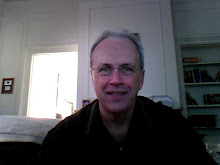Links are http://jonathan.mueller.faculty.noctrl.edu/toolbox/whatisit.htm & http://www.library.cornell.edu/olinuris/ref/webcrit.html respectively.
I really liked the format of the Toolbox. It was straightforward and crystal clear, starting with definitions, concrete examples of authentic assessment from teachers in the author's course, and then a nice compare and contrast section outlining the differences between traditional assessment and authentic assessment. I thought his point about a teacher not really having to choose between the tw
 o was insightful, likening the process to preferring a chauffeur who could both pass the written driver's test and also perform well on the road to one or the other alone.
o was insightful, likening the process to preferring a chauffeur who could both pass the written driver's test and also perform well on the road to one or the other alone.I also liked the side-by-side chart of defining attributes of each type of assessment, followed by his "fleshing out" the chart and describing the benefits of constructivist, performance learning as opposed to the narrower confines of recall and contrived responses in traditional assessments which do not accurately reflect true learning.
With the data smog and profusion of websites out there, I think teaching information literacy is extremely important for our students. They must be able to make reasoned, balanced appraisals of the trustworthiness of internet sites, as not every one is worthy of reference status by any means. The five criteria are short, pointed questions which virtually every student can use to assess a site to evaluate its merit, integrity, and authority. If a web site display any weaknesses or deficiencies
 , a student quickly knows to enlarge the search or look elsewhere. With the sheer abundance of materials out there, all claiming to be authoritative, this skill is critical for the net generation learners. Kind of like separating the wheat from the chaff.
, a student quickly knows to enlarge the search or look elsewhere. With the sheer abundance of materials out there, all claiming to be authoritative, this skill is critical for the net generation learners. Kind of like separating the wheat from the chaff.


1 comment:
Bill I found the part about choosing websites helpfull as well. As we all know just because it is posted on the internet does not make it truthfull or factual. It could just be some one's opinon. On a site such as wikipeida, I know enough about history that I could change someone's biography so that it was completely false, yet it could sound truthful. It is important to know what is real and what isn't on the net!
Post a Comment